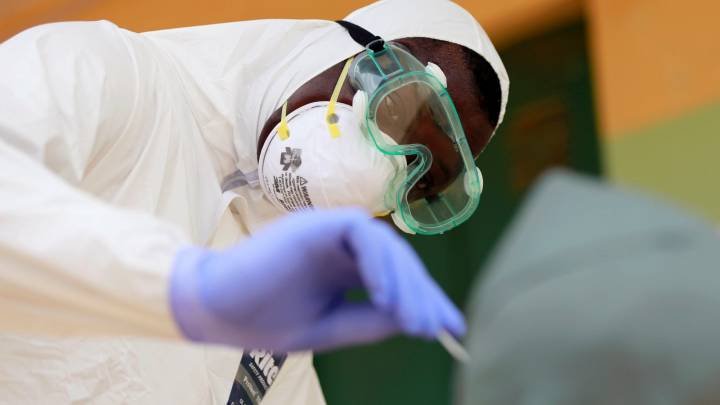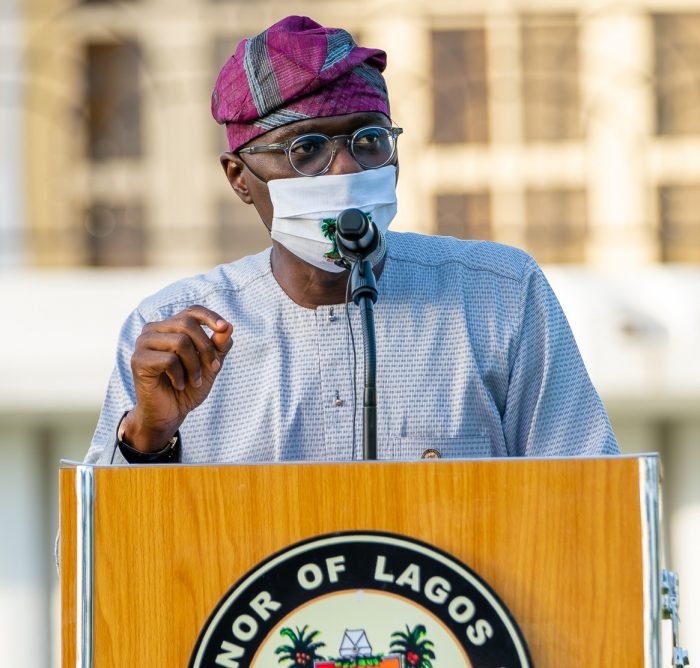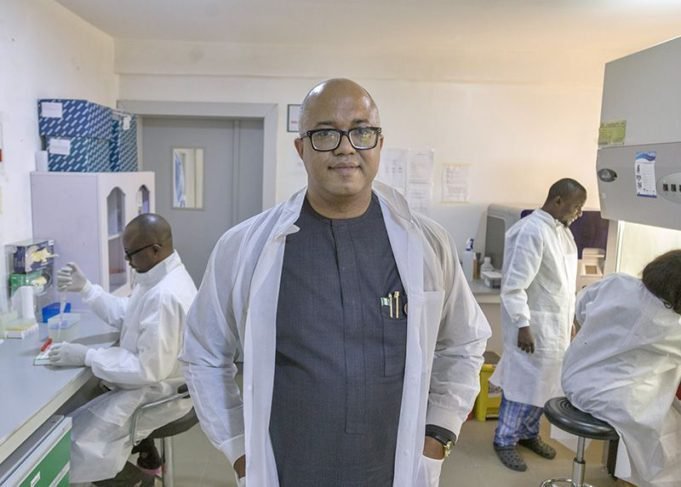Opinion
COVID-19, schools reopening and the public health concern

The Insight by Lateef Adewole
If there is anything that has given many people a lot of concerns in the past few days, it is the reopening of schools and resumption of the students across the country this Monday, 18th of January, 2021. It has been trailed with mixed reactions. Although, some belated in my opinion, like the later eyebrow raised by the committee on Basic Education and Services of the House of Representatives. That chamber too was not unanimous among all members.
The decision to reopen the schools was reached after many back and forth in the midst of uncertainties, as the second wave of coronavirus pandemic seems to be on rampage globally. Nigeria has begun to experience her own in the past two months. The impact seems to be more devastating, going by the daily statistics of infections and deaths across the states, which have been on the increase.
What made it more pronounced is the calibre of people who this second wave has either infected or killed. The news of Governor Sanwo-Olu’s infection was a shock to many. This was because, for over six months when the first wave raged Lagos, the epicentre of the virus infections, he led from the front all through but was never infected. Although, his Commissioner for Health, Professor Abayomi was not that lucky. He contracted the virus but recovered.
The governor has since recovered too, just like few other of his colleague-governors who were also infected. So many high profile personalities have been infected. From entertainment, to academia, to politics, to business to media to military to police to religion to traditional rulers and so on. Most of these people recovered.

Governor Babajide Sanwo-Olu of Lagos
Sadly, Nigeria has lost many eminent personalities as well. Six prominent professors died recently. Media mogul, Chief Isiah died. Generals in the Army died. Senior police officers died. Renowned business giant, Chief Akin-Olugbade died. So many important people too numerous to mention have lost their lives to Covid-19 in just two months. It has been scary.
So, in the midst of all these, asking children to go back to schools is worrisome. This explained the initial shift in the resumption date from 4th to 18th of January. There were insinuations that the owners of private schools put a lot of pressure on governments to reopen since that is their own business and source of livelihood. The experience of last year to them and their employees was not palatable at all.
However, do some peoples’ interests suffice to take such huge risk that comes with exposing millions of children to Covid-19, with the attendant consequences of possible super-spreading as they go to and return from schools on daily basis? Of greater worry is the fact that, based on experience, the young people may be asymptomatic due to their possible high immunity while already infected and become carriers.
They can then carry this virus home to their parents or grandparents, who might have lower immunity to the virus due to their ages and infect them. This can then start a chain of infections and even deaths. The thought of this is so scary. And I could imagine how that sends shock waves through the spines of many individuals.

Director General of NCDC, Dr Chikwe IhekweazuI
The truth of the matter is, it may not be as bad as that. The situation in Nigeria and Africa majorly has defied all logic. Up till now, there are still investigations about what kept the continent standing, contrary to the prediction last year by the global powers-that-be, that people would likely be dropping dead like flies if the virus entered Africa. That prediction fell flat on its face! Africa remained the “safest” continent in the world from coronavirus. That’s a fact. And no one should tell us not to bask in that euphoria.
Apart from few countries like South Africa, Morocco, Tunisia, Egypt, etc, where infections are high as well as fatalities, Africa has extremely low figures relative to the population and availability of quality healthcare. In fact, all odds were against Africa and Nigeria remains the hub, with about 17% of the entire population of Africa. But, we have been surviving. Let no one tell us that it’s because we are not testing enough. Afterall, people are not falling sick and or dying anyhow as well, which could have been considered as the evidence of the fatality of the virus.
Unfortunately, all these “achievements” are by no efforts of ours majorly. I can call it “divine intervention”, as they say in the spiritual circle. Like the Yorubas will say; “maalu t’ikoniru, Oluwa ni o l’esinsin fun” (it is God who drives away the flies from a tailless cow). How we have survived till now with very low infections and deaths has been a mystery to us and the world. So, we should not overstretch our luck by being reckless as it were.
On the flip side, can we really quantify the impact of closing down schools like we did last year for over six months? University students are yet to resume after almost one year. Can we afford another such redundancy that children were subjected to while the schools were closed? Unfortunately, Nigeria is a country with no data. So, it is impossible to get accurate evaluation of that.
As individuals, as parents and school teachers, we knew what happened. Most students have forgotten all they previously learned in schools which resulted in poor academic performances. Many girls could not return because they got pregnant. Many dropped out due to one reason or another. And so on. So much as online classes were introduced, they were not as effective. There were too many constraints and challenges that affected it. By the way, how many public schools were able to do any online class? Apart from the teachings on the radio and television stations which were broadcasted into various homes, what else was done?
Is it not people who have radios and televisions at home who would be able to follow up with such teaching programmes? And how coordinated was it? For those who have radios and televisions, where is the electricity to use to power them? Many parts of the country are largely without power. Where there is, it is epileptic. How then can students at home attend these classes through broadcasts?
Majority of private schools were able to reasonably conduct their teachings online. And it was at a huge costs to both the parents and the schools. Parents who managed to keep their children in schools where the fees were not free already, had to start looking for mobile phones and laptops for their kids for online classes. Where is the money? This was apart from unending data subscriptions and provision of power supply through generators with the increasing fuel prices. They were seriously burdensome.
Yes, it is an innovation that has become expedient for adoption going by the trend in this 21st century and the new technology-driven world, but the infrastructures have to be in place first. That has not been done or provided by the governments. My friend in the USA told me how brand new computers were immediately sent to all his kids in primary and secondary schools once the government announced the lockdown and directed that schools should begin online classes. They were free of charge.
This was the situation in many Western countries, Asia, Canadian and Arabian countries. Switching to this was not much of problems there. These infrastructures are available. These are countries that Africa countries like Nigeria are copying. That is disingenuous. It is foolhardy. We are a people who have abandoned our thinking capacity but just do “follow-follow”, as Fela would say.
Rather than do thorough thinking and have better understanding of the peculiarity of our own situation, and look for suitable solutions that are peculiar to us or adapt any others from countries similar to our situation, we would rather copy developed countries hook, line and sinker, or simply follow whatever they do or tell us to do, whether suitable for our own conditions or not. Because schools are being shut in Europe and America, then, they must be shut here too.
What are our political leaders afraid of actually? Are all these sincerely because they “care” about the people or because coronavirus is no respecter of status as they too get infected and even died, like the masses? Why have they suddenly become efficient and effective where it concerns Covid-19 and not many other numerous diseases that the poor and ordinary citizens have battled with all their lives?
In Nigeria, malaria has killed millions of people, including mothers and children. Lassa fever have been raging in the past two years with greater numbers of fatalities. Numerous other things ail the people but they never caught the attention of our leaders like this. Why? Because “they are diseases of the poor”. Why should that be their concerns?
Ironically and hypocritically too, the same people do not worry about coronavirus spreading when their interests are at stake. The Covid-19 protocols can be bridged in that case. Last week, Rt. Hon. Dimeji Bankole got married in Abuja. The place was packed full with people dancing to music’s from Lekan, Timi Dakolo and Jaywon. Many neither use nose masks nor do social distancing. What other supper-spreader could be more than that? Whereas, many people were arrested in Lagos clubs for having fun. That is the double standards.
The same government who is worried about coronavirus and opening of schools, brought up the issue of National Identification Number (NIN). As lofty as the purpose, the timing made it wrong. Anyone who has been to or watched the activities at different locations where registrations are taking place will realise the futility of efforts to curb coronavirus spreading. It made nonsense of all the talks about social distancing, nose masking and the rest. They are a waste!
What about some recently conducted elections? The campaigns were nothing but complete disregard of Covid-19 protocols. Same as the voting day. The political leaders will never do anything about such since that affects their interests directly. All these do not show sincerity of purpose.
Then, what should be done? It is unfortunate that people who are saddled with the responsibilities of handling the challenges of coronavirus seems to be more interested in the “dollars” than finding real solutions. I watched a man on televison recently while being interviewed. He claimed that he and his team of researchers have come up with a drug formulation that can cure or prevent coronavirus. And that they have made all efforts to get the governments to look at their solutions and subject it to official tests but were shunned. He claimed that same drug has now been adopted in another country outside Africa. That’s our story.
With the deluge of information available from the lessons learnt from the infected people who are now cured, there are many local things that they took along side their routine treatments. Many people are not infected because of various indigenous herbs they take routinely. Why won’t we look for healing from our back yard? It might happened that what we are looking for in Sokoto is inside our “sokoto” (trouser’s pocket). But our craze for “foreign things” has blinded us.
We would rather pay a whopping 400billion naira for the vaccination of Nigerians. Another 6.45 billon was approved on Thursday to build oxygen plants in the 36 states and FCT. These are what government officials like; procurements. The whole allocation to the health sector in 2021 budget is about 46 bllion naira only. How much is allocated to research and development to find cure for coronavirus since it started? How much supports have the indigenous researchers got from governments? Those kind of expenditures will not “bring money to the boys”, so, they will never be considered.
While it is critical for government to be concerned about the people, if they were ever, priorities must always be set right. My suspicion is that, the thing that is called coronavirus must be very widespread among the citizens as it is right now and even all through last year. It’s just that the symptoms are basically what people regularly experienced as fever, headache, cough, cold, catarrh, etc., which people get themselves privately treated for or just take herbs at home. This must have been responsible for why the figures are low. If tests were to be carried out on the populace on a large scale, majority will test positive to coronavirus. So, it is not as if it is now that coronavirus will be spreading because schools are opened. It is just that we only know or hear of people with severe conditions, which can be due to their lifestyles or other health conditions.
People just need to be more careful, take all the precautions like wearing nose masks, regular hand washing, keeping distance, and the rest. These should be applicable to all, including children going to schools. Government must also show responsibility, sincerity and leadership by example. Applying double standards in treating culprits of Covid-19 rules is inimical to effectiveness of such rules. We need to look inwards as well for our solutions. Government should suport indigenous researchers.
May God continue to protect us.
God Bless Nigeria.
Lateef Adewole is a political analyst and social commentator can be reached by email lateefadewole23@gmail.com or via WhatsApp +2348020989095 and @lateef_adewole on Twitter

